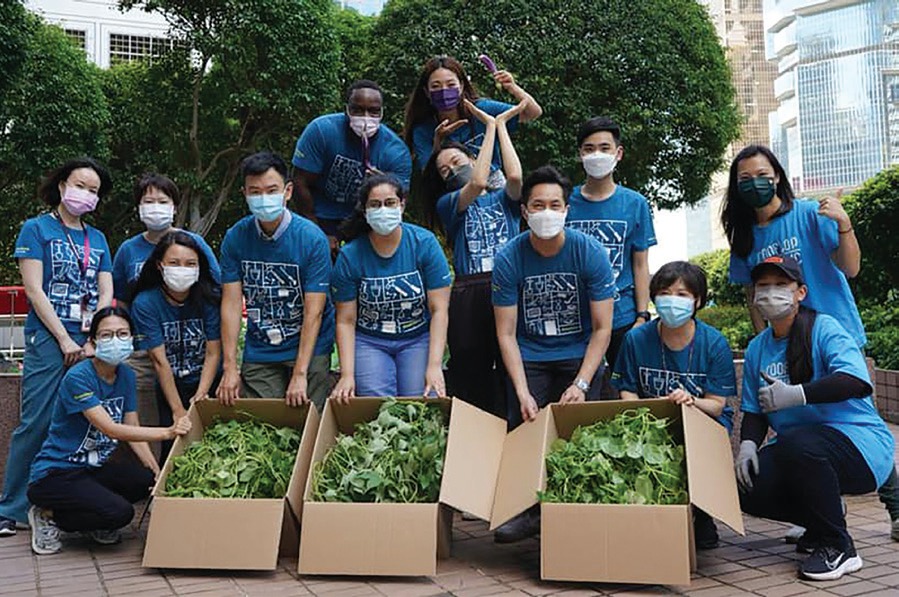Reuse: The Recovery Of Edible Food
Most of the waste, including food waste, in our landfill is organic waste. When such organic waste gets buried in landfills, it undergoes anaerobic decomposition and releases methane, a greenhouse gas that is 25 times as potent as carbon dioxide at trapping heat in the atmosphere. Food waste not only comprises of expired food that people are forced to throw away, but also includes a great deal of fresh ingredients that are still fresh and edible. Food waste has a huge impact on climate change and other environmental issues. According to ‑ gures from the United Nation’s Food and Agriculture Organization, food waste generates 3.3 billion tons of carbon dioxide emissions per year.
(Image Courtesy: Unsplash)
To tackle the issues of food waste, the United Nations has set goals to “halve per capita global food waste at retail and consumer levels and reduce food losses along production and supply chains by 2030”. Though the best way to avoid food waste is from the outset, it is also important to manage unsold fresh food. Private enterprises and non-governmental organizations have been coming up with creative solutions to tackle this problem.
Some charitable organizations are working with the food industry to collect surplus but fresh food supplies, process and then re-distribute them for free to the underprivileged. Some startups are building online platforms that sell leftover food from food outlets, o ering special priced items and “mysterious box / basket” for a limited time. Some mobile app platforms even allow consumers to exchange food or other items with people in the neighborhood. With a bit of extra creativity and e ort, leftovers can be given a second chance at life to help reduce food wastage.
00
Local And Overseas Food Recovery Organizations
Charitable organizations in Hong Kong and from overseas work closely with their local food industry to collect, process, and re-distribute surplus fresh food to those who are underprivileged.
Food Angel
Base(S): Hong Kong
Year of Establishment: 2016
Food Angel collects edible surplus food from different sectors of the local food industry and sends it to its central kitchens in Chai Wan and Sham Shui Po, where the food is cooked into nutritious hot meals and redistributed to serve the underprivileged communities. Food Angel also accepts food donations. Interested individuals can donate unwanted but edible food to collection boxes placed at 14 LINK shopping malls across Hong Kong. On average, Food Angel collects 35 tons of surplus food every week and produces more than 15,000 meals a day. In addition to delivering the meals to those in need, it has also set up automated food dispensers in 23 locations across Hong Kong, providing flexible collection of cooked-chill meals to support individuals with irregular work schedules.
(Image Courtesy: Food Angel)
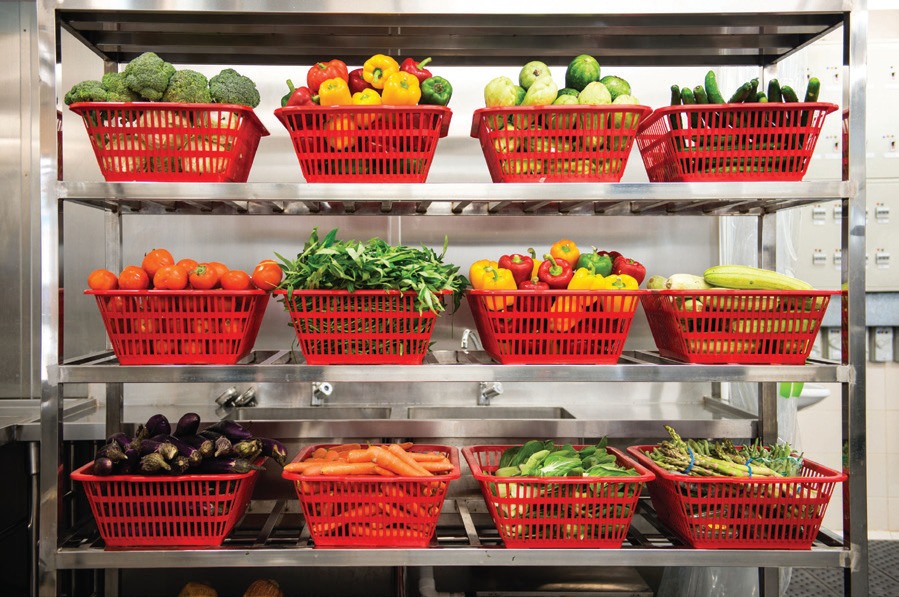
Phenix
Base(S): France And Hong Kong
Year Of Establishment: 2019
Phenix is the first Hong Kong-based mobile app committed to rescuing surplus food from local stores, creating a win-win solution that saves money for consumers while reducing food waste for food outlets. Established in France in 2019, Phenix entered the Hong Kong market in 2021 as its first test market in Asia. Its mobile app connects the food suppliers and consumers, and has already attracted more than 100 local food and beverage industry partners. Users can purchase leftover food from F&B outlets at 50% o or more. It is sold in the form of "Mystery Baskets", containing varying contents depending on the sales of the outlet on that day. The Phenix mobile app can prevent up to 3 tons of unsold fresh food from being sent to land‑ lls in Hong Kong every day.
(Image Courtesy: Phenix)
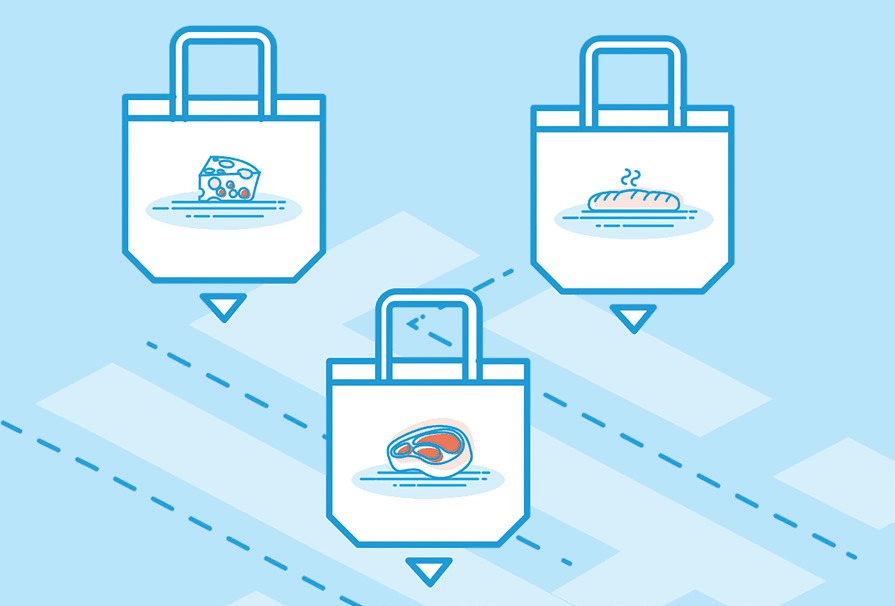
Chomp
Base(S): Hong Kong
Year Of Establishment: 2021
Similar to Phenix, Chomp is a startup founded by local foodies in Hong Kong whose mission is to change people's perceptions about food consumption. Users can simply download the mobile app, browse their favorite food outlets, select the store and pick up time, and then purchase the "Mystery Boxes" at discounted prices. For every box purchased, one fewer box of excess food is discarded. In order to minimize carbon emissions, the company does not offer delivery services. Users must pick up the goods in store. This also encourages them to experience the distinctive flavors of small, local F&B outlets in person.
(Image Courtesy: Chomp)
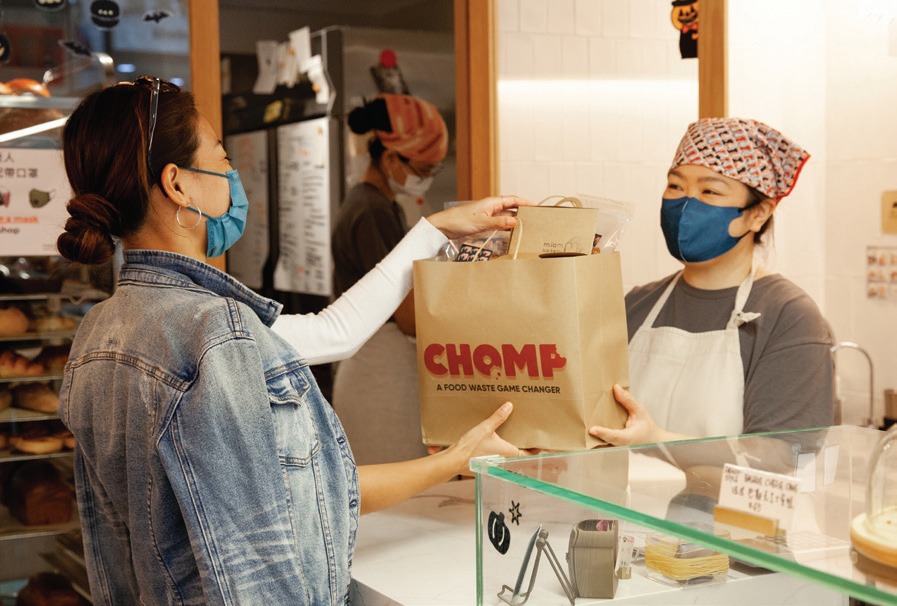
Olio
Base(S): UK
Year Of Establishment: 2015
Olio first started out as a food-sharing mobile app with an aim to reduce food waste. Currently it has approximately 2.3 million registered users across 48 countries and regions, including Hong Kong. Through the mobile app, households can get connected to parties who are giving away leftover food for free. The donated/ shared items can be any edible food, from raw to cooked, sealed to opened. Individuals or companies, such as food retailers, restaurants, corporate canteens, etc. are all encouraged to donate. Since the company was founded, the Olio app has added multiple new features, including platforms that allow small shops or individuals to sell homemade food, and for lending various items to people in need. Olio also has its own team that collects leftover food from restaurants, but this service is only available in the UK at the moment.
(Image Courtesy: Olio)
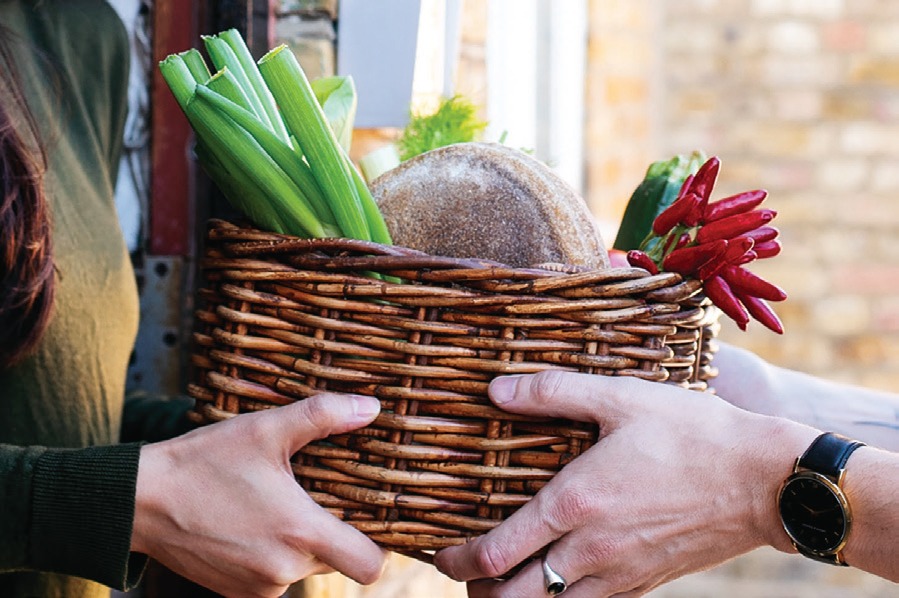
Foodlink Foundation
Base(S): Hong Kong
Year Of Establishment: 2001
Foodlink Foundation is a registered Hong Kong charity dedicated to fighting hunger, building self-sufficiency, and fostering nutritional wellness among those in need. With over 150 donors from the hotels and F&B outlets in Hong Kong, there are currently more than 100 beneficiaries. Foodlink is the first organization to distribute cooked and heated food. The team heads to hotels, international schools and corporates to collect cooked and safe food in excess, which are to be transported by their trucks that are equipped with refrigerators. Within an hour, the food are sent to bene‑ ciaries where they are reheated onsite and distributed to the people in need.
(Image Courtesy: Foodlink)
